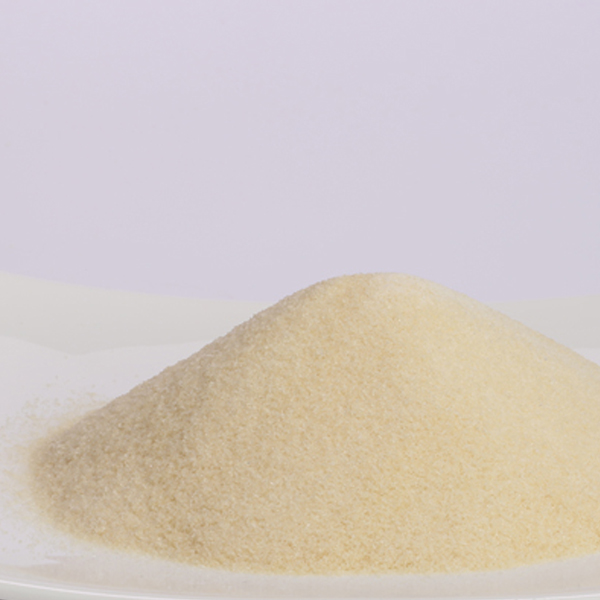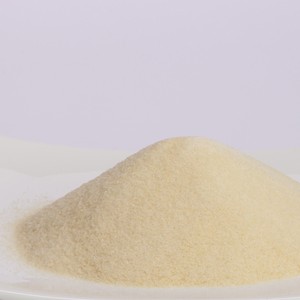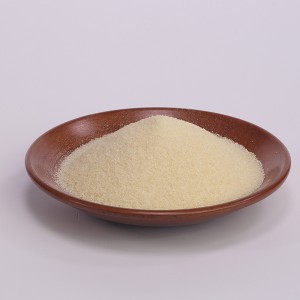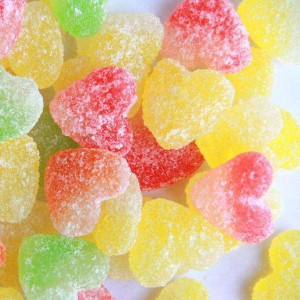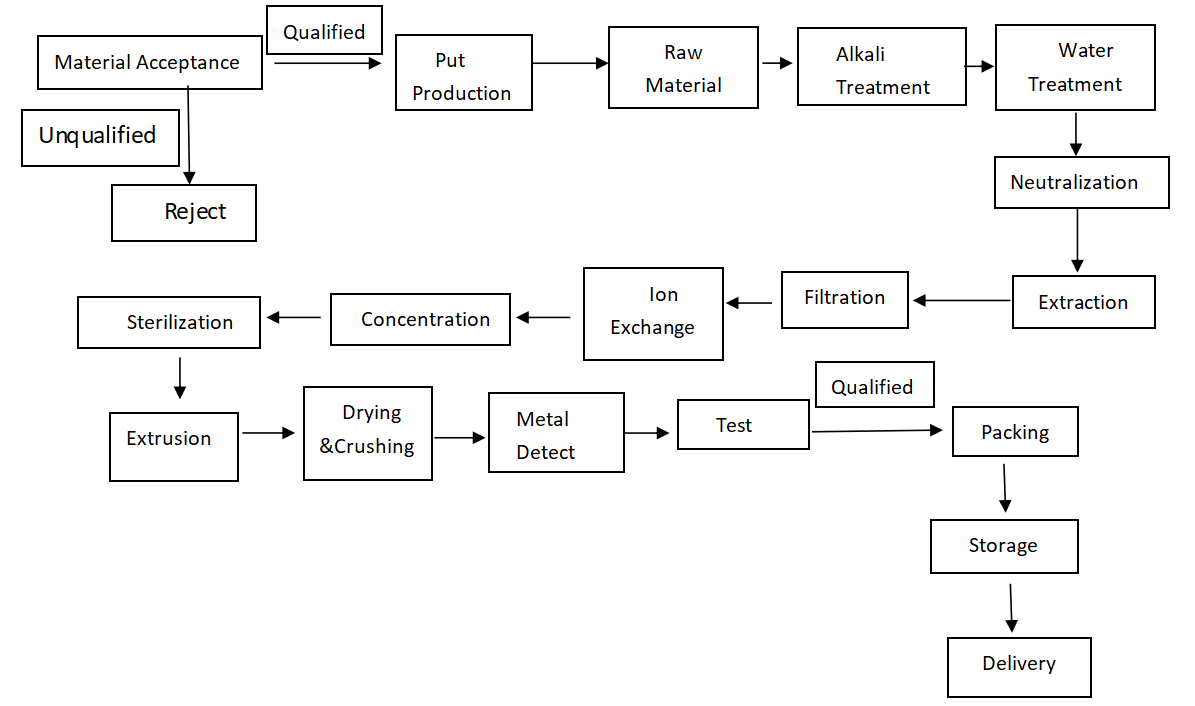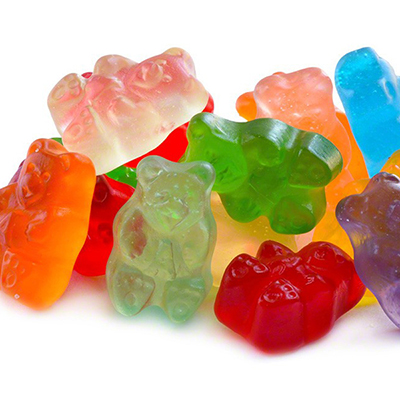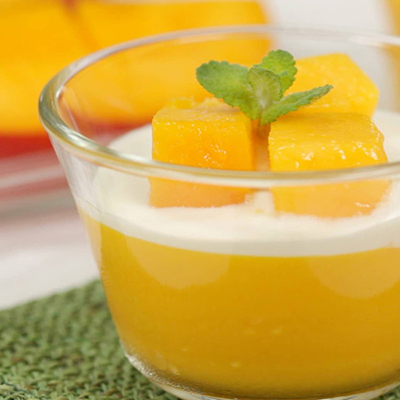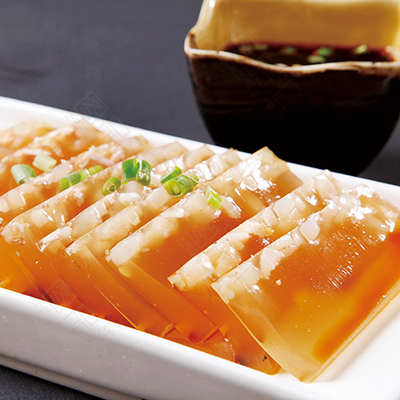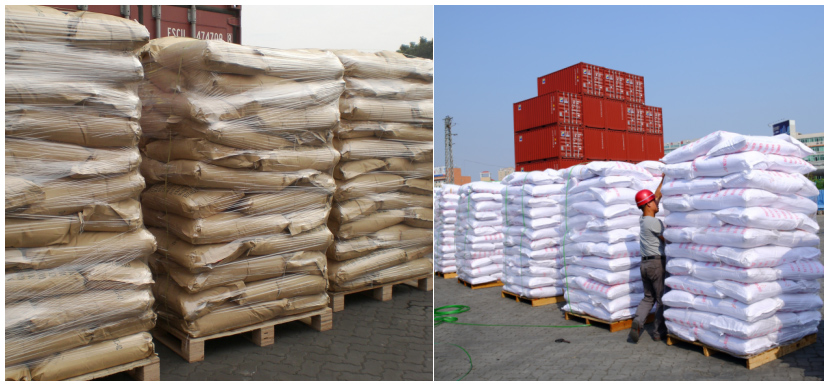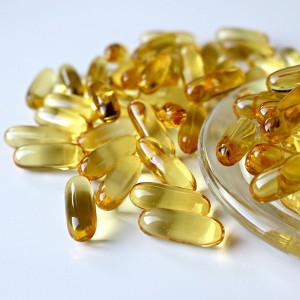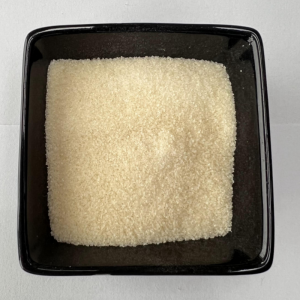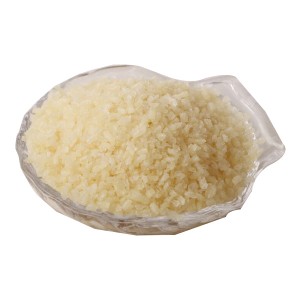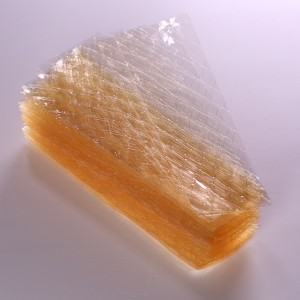Food Grade Gelatin
Some Specifications of Food Gelatin
|
Application |
For gummy bear |
For jelly candy |
For marshmallow |
|
Jelly strength |
250 bloom |
220-250 bloom |
230-250 bloom |
|
Viscosity (customized) |
2.9-3.2mpa.s |
2.8-3.2 mpa.s |
3.2-4.0 mpa.s |
|
transparency |
450mm |
500mm |
500mm |
Why Choose Yasin As Your Food-grade Gelatin Supplier?
1. Raw Material: Yasin food gelatin sources for animal skin from Yunnan, Gansu, Mongolia, etc pollution-free grassland
2. Experienced Workers: Most of our workers with rich experience and together with us in gelatin production for more than 15 years
3. Technical Support: Yasin can provide you with technical support if you have any problems in production with our food-grade gelatin
3. Eco-friendly: Invested and updated our wastewater treatment system by around US$ 2 million to maintain a sustainable and Eco-friendly approach
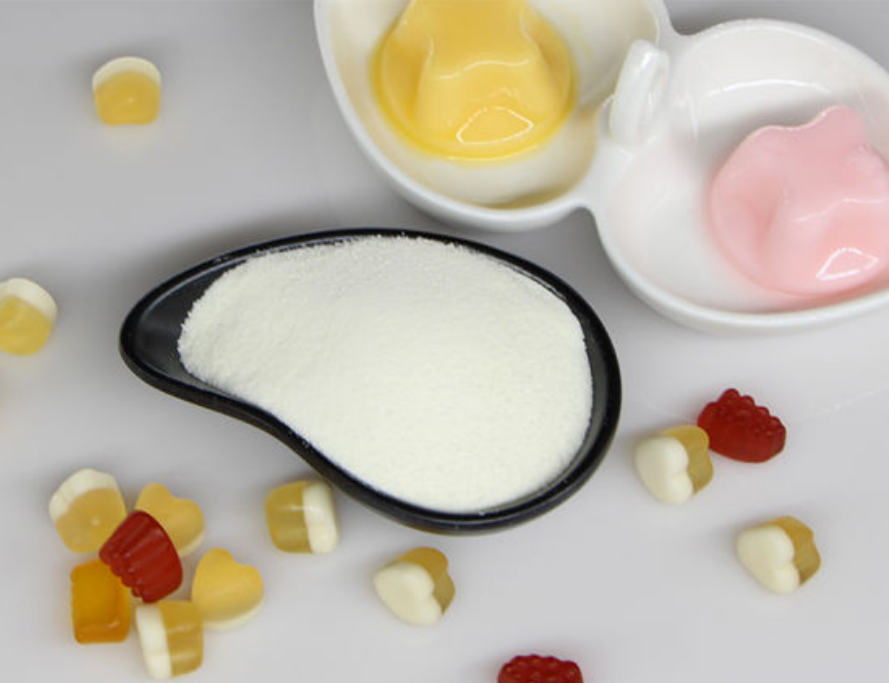
Application
Confectionery
Confections are typically made from a base of sugar, corn syrup, and water. To this base, they are added flavor, color, and texture modifiers. Gelatin is widely used in confections because it foams, gels, or solidifies into a piece that dissolves slowly or melts in the mouth.
Confections such as gummy bears contain a relatively high percentage of gelatins. These candies dissolve more slowly thus lengthening the enjoyment of the candy while smoothing the flavor.
Gelatin is used in whipped confections such as marshmallows where it serves to lower the surface tension of the syrup, stabilize the foam through increased viscosity, set the foam via gelatin, and prevent sugar crystallization.
Gelatin is used in foamed confections at a 2-7% level, depending upon the desired texture. Gummy foams use about 7% of a 200 - 275 Bloom gelatin. Marshmallow producers generally use 2.5% of a 250 Bloom Type A gelatin.
|
|
Function |
Bloom |
Type * |
Viscosity |
Dosage (in cp) |
|
Confectionery |
|||||
|
Gelatin gums |
|
180-260 |
A/B |
low-high |
6 - 10 % |
|
Wine gums (gelatin + starch) |
|
100-180 |
A/B |
low-medium |
2 - 6 % |
|
Chewable sweets (fruit chews, toffees) |
|
100-150 |
A/B |
medium-high |
0.5 - 3 % |
|
Marshmallows (deposited or extruded) |
|
200-260 |
A/B |
medium-high |
2 – 5 % |
|
Nougat |
|
100-150 |
A/B |
medium-high |
0.2 – 1.5 % |
|
Liquorice |
|
120-220 |
A/B |
low-medium |
3 – 8 % |
|
Coating (chewing gum – dragees) |
|
120-150 |
A/B |
medium-high |
0.2 – 1 % |

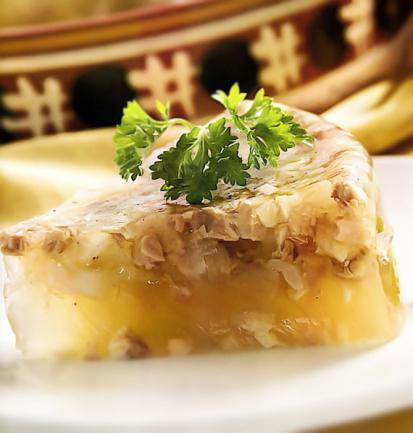
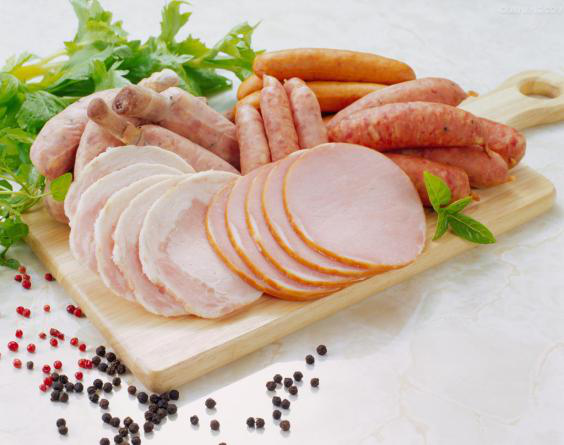
Wine and Juice Fining
By acting as a coagulant, gelatin can be used to precipitate impurities during the manufacture of wine, beer, cider, and juices. It has the advantages of unlimited shelf life in its dry form, ease of handling, rapid preparation, and brilliant clarification.
|
|
Function |
Bloom |
Type * |
Viscosity |
Dosage (in cp) |
||||||
|
Wine and Juice fining |
|||||||||||
|
|
|
80-120 |
A/B |
low-medium |
5 –15 g/hl |
||||||

FAQ
Gelatin comes in many forms, including gelatin powder or granulated gelatin, with different strengths and bloom values. Different types are suitable for different applications.
Yes, It is critical to ensure that the gelatin used comes from ethical and sustainable suppliers and that the manufacturing process follows sustainable practices.
Yes. It is important to verify that gelatin products are free of allergens, additives, or preservatives, especially for individuals with specific dietary restrictions or preferences.
1000+ tons production capacity ensures we can handle large orders or meet specific production needs.
Yasin can guarantee a fast delivery time of about 10 days.
Food Grade Gelatin
| Physical and Chemical Items | ||
| Jelly Strength | Bloom | 140-300Bloom |
| Viscosity (6.67% 60°C) | mpa.s | 2.5-4.0 |
| Viscosity Breakdown | % | ≤10.0 |
| Moisture | % | ≤14.0 |
| Transparency | mm | ≥450 |
| Transmittance 450nm | % | ≥30 |
| 620nm | % | ≥50 |
| Ash | % | ≤2.0 |
| Sulfur Dioxide | mg/kg | ≤30 |
| Hydrogen Peroxide | mg/kg | ≤10 |
| Water Insoluble | % | ≤0.2 |
| Heavy Mental | mg/kg | ≤1.5 |
| Arsenic | mg/kg | ≤1.0 |
| Chromium | mg/kg | ≤2.0 |
| Microbial Items | ||
| Total Bacteria Count | CFU/g | ≤10000 |
| E.Coli | MPN/g | ≤3.0 |
| Salmonella | Negative | |
Flow Chart For Gelatin Production
Confectionery
Gelatin is widely used in confections because it foams, gels, or solidifies into a piece that dissolves slowly or melts in the mouth.
Confections such as gummy bears contain a relatively high percentage of gelatin. These candies dissolve more slowly thus lengthening the enjoyment of the candy while smoothing the flavor.
Gelatin is used in whipped confections such as marshmallows where it serves to lower the surface tension of the syrup, stabilize the foam through increased viscosity, set the foam via gelatin, and prevent sugar crystallization.
Dairy and Desserts
Gelatin desserts can be prepared using either Type A or Type B gelatin with Blooms between 175 and 275. The higher the Bloom the fewer gelatin required for a proper set (i.e. 275 Bloom gelatin will require about 1.3% gelatin while a 175 Bloom gelatin will require 2.0% to obtain an equal set). Sweeteners other than sucrose can be used.
Today’s consumers are concerned with caloric intake. Regular gelatin desserts are easy to prepare, pleasant tasting, nutritious, available in a variety of flavors, and contain only 80 calories per half-cup serving. Sugar-free versions are a mere eight calories per serving.
Meat and Fish
Gelatin is used to gel aspics, head cheese, souse, chicken rolls, glazed and canned hams, and jellied meat products of all kinds. The gelatin functions to absorb meat juices and to give form and structure to products that would otherwise fall apart. Normal usage level ranges from 1 to 5% depending upon the type of meat, amount of broth, gelatin Bloom, and texture desired in the final product.
Wine and Juice Fining
By acting as a coagulant, gelatin can be used to precipitate impurities during the manufacture of wine, beer, cider and juices. It has the advantages of unlimited shelf life in its dry form, ease of handling, rapid preparation and brilliant clarification.
Package
Mainly in 25kgs/bag.
1. One poly bag inner, two woven bags outer.
2. One Poly bag inner, Kraft bag outer.
3. According to customer’s requirement.
Loading Ability:
1. with pallet: 12Mts for 20ft Container, 24Mts for 40Ft Container
2. without Pallet: 8-15Mesh Gelatin: 17Mts
More than 20Mesh Gelatin: 20 Mts
Storage
Keep in a tightly closed container, stored in a cool, dry, ventilated area.
Keep in GMP clean area, well-controlled the relatively humidity within 45-65%, the temperature within 10-20°C. Reasonable adjust the temperature and moisture inside the storeroom by adjusting Ventilation, cooling and dehumidification facilities.


